List of 20+ Animals and Their Homes [Practice Worksheets + E-Book]
Pinkey Sharma |
Child Learning |
2024-11-29 |
null mins read
![List of 20+ Animals and Their Homes [Practice Worksheets + E-Book] Animal and their home](/_next/image?url=https%3A%2F%2Fstorage.googleapis.com%2Forchidsinternational-cms%2Fblog%2FAnimals-and-their-Homes-banner.jpg%3Fwidth%3D675&w=3840&q=75)
Table of Contents
- What is home for animals?
- Why do animals need homes?
- What is the difference between habitat and shelter?
- Homes of animals
- Animals and their homes
- Domestic animals and their homes
- Animals and their homes worksheets for kids - Free PDF Download
- Orchids' learning material
- Things you have learnt!
- Frequently Asked Questions
After school do you want to go back home to meet your family and friends? We all love going back home, because it is place where we can rest and feel safe. And like us, animals feel the same way about their homes! They build their homes to stay safe and comfortable. But have you ever wondered - How animals make their homes? What do we call an animal's home? Let’s learn about animals and their homes in this article!
But before that, do you know what are domestic and what are wild animals?
A domestic animal is an animal that lives with humans. We build homes for them and take care of them, while these animals help us in different ways. Some help with work like horses, some give us food like milk - cow or eggs - chicken, and some are pets we love like dogs and cats.
A wild animal is an animal that is not taken care by us and lives in forest. Example - Lion, Tiger, Deer etc. Want to know more about the wild animals? Check the top 100 wild animals list here.
Out of these animals, say which are domestic and which are wild animals?

What is home for animals?
An animal’s home is called a habitat. It is where they get water, food, and shelter. Some animals build their homes like a bird building it's nest; some like - a lion uses natural places called den, while for some animals, humans build homes for them like a kennel for a dog.
Why do animals need homes?
Animals need a home for many reasons:
- To stay safe from bad weather.
- To protect themselves from enemies.
- To have a place to rest and hide.
- To keep their food safe.
- To raise their babies and take care of them.
A home is very important for animals to live and grow just like humans.
Some common examples of homes of animals.
Den: Lions, bears live in dens.
Hive: Insects such as ants, bees live in hives. A hive is made of wax.
Web: Spiders use webs to catch food and sometimes to keep their eggs safe.
What is the difference between habitat and shelter?
A habitat is the natural environment where an animal lives. It provides everything the animal needs to survive, like food, water, and space.
Examples: A forest is the habitat for deer.
A Shelter is the specific place within a habitat where an animal takes cover or feels safe. It offers protection from other animals, harsh weather like rain, heat, cold, and other dangers.
Examples: A bird’s nest is its shelter, while its habitat might be a tree in the forest.
Homes of animals
A picture of different animals and their homes:
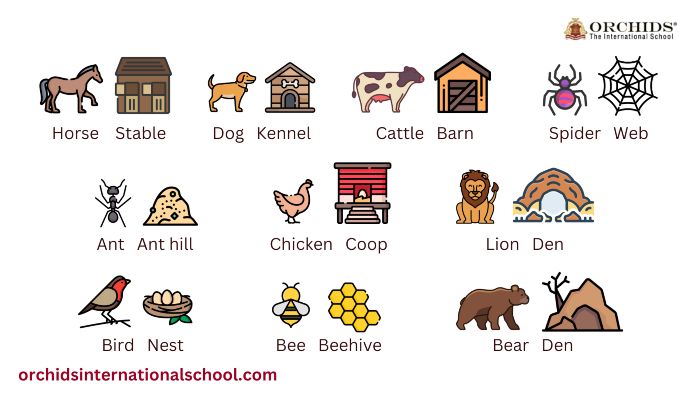
Now, let's see a list of 30 animals and their homes:
| Animals | Home Names |
| Ant Home | Hill |
| Bear Home | Den |
| Bee Home | Hive |
| Bird Home | Nest |
| Cattle Home | Barn |
| Chicken Home | Coop |
| Dog Home | Kennel |
| Horse Home | Stable |
| Lion Home | Den |
| Spider Home | Web |
| Tiger Home | Lair |
| Rabbit Home | Burrow |
| Cat Home | Cattery |
| Deer Home | Bushes |
| Donkey Home | Shed |
| Duck Home | Pond |
| Fox Home | Hole |
| Goat Home | Pen |
| Grasshopper Home | Grassland |
| Guinea Pig Home | Cage, Hutch |
| Hyena Home | Den |
| Koala Home | Tree |
| Monkey Home | Tree |
| Ostrich Home | Veldts |
| Panda Home | Bamboo tree |
| Pig Home | Cote, Pen |
| Pigeon Home | Cote, Loft |
| Rat Home | Hole |
| Shark Home | Sea |
| Zebra Home | Safari |
Want to find the best schools near you? Check our latest offering, Schools Universe
Animals and their homes
Some animals like bees, ants build their own homes, while some like lions use natural places to stay.
1. Bees - Beehive
Bees work together to make their hive, their home. Beehives can be man-made as well as natural.
Bees communicate to each other by making noises and dancing, called the waggle dance. Do you know just like bees, we also dance? Check our dance curriculum here.
The beehives are created with wax, secreated by the glands of bees.
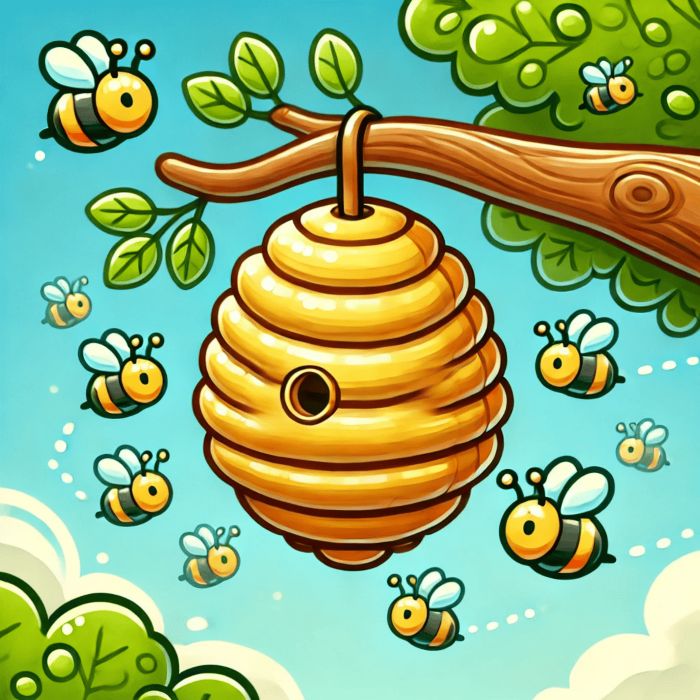
2. Ant - Ant hill
Ants build amazing homes called ant hills. These homes have many rooms. Some rooms are for shelter, some are for keeping the baby ants, and some are for storing food.
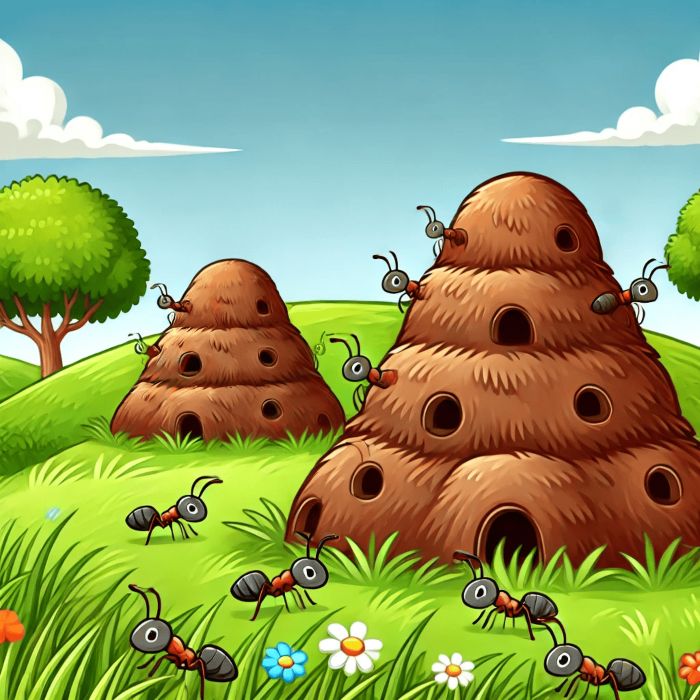
3. Bear - Dens
A bear's home is called a den. Bears use dens as a place to give birth and take care of their cubs. Dens can be caves, hollow trees etc. Interesting? Check here for different bear homes.
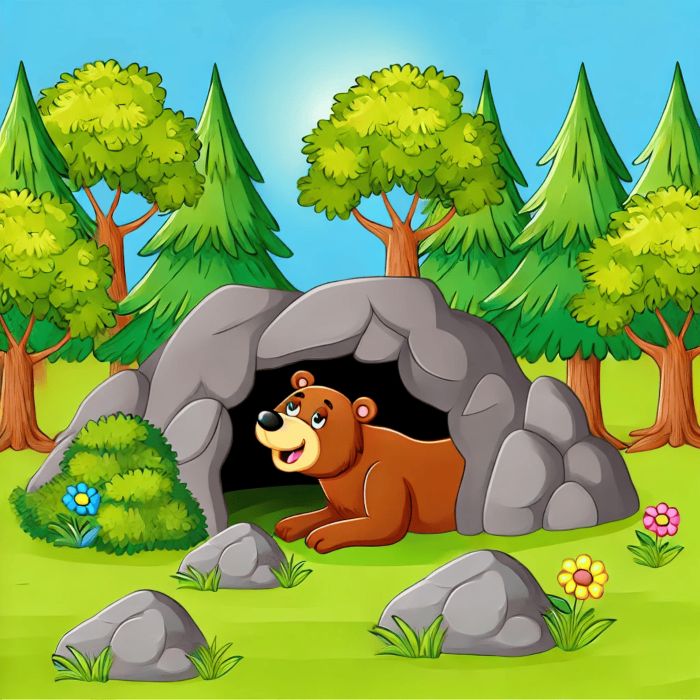
4. Bird - Nest
A bird’s home is called a nest. Birds build nests to lay eggs and take care of their babies. Nests can be found in trees, bushes or even on the ground. Birds also live with humans as pets, but most of them live on their own.
Do you know different birds build nests in different ways? Click here to see more.
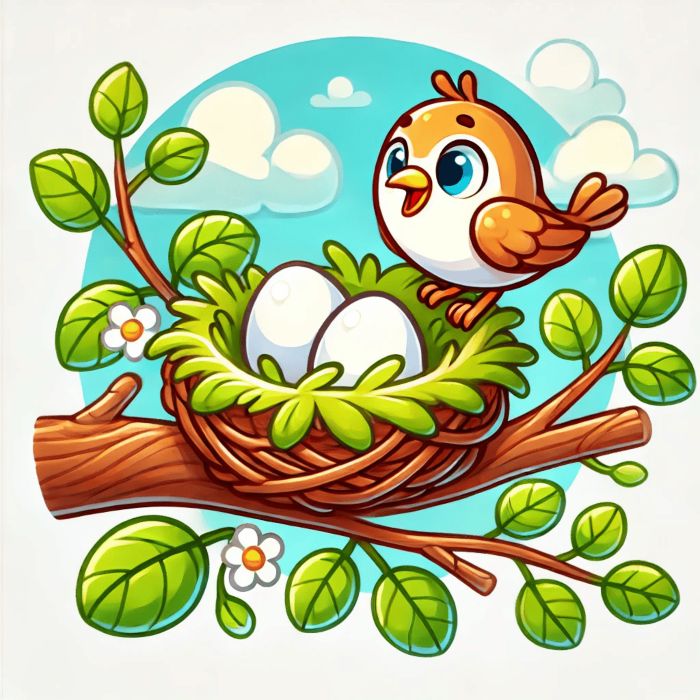
5. Lion - Den
Lions use dens as shelter. These dens can be in caves, thick bushes, or under big trees. They give lions a safe place to rest and protect their cubs.

6. Spider - Web
Spiders don’t have regular homes, but they make webs to catch food and for shelter. These webs are made of silk that spiders produce and use for hunting and staying safe. Click to see different kinds of spider webs.
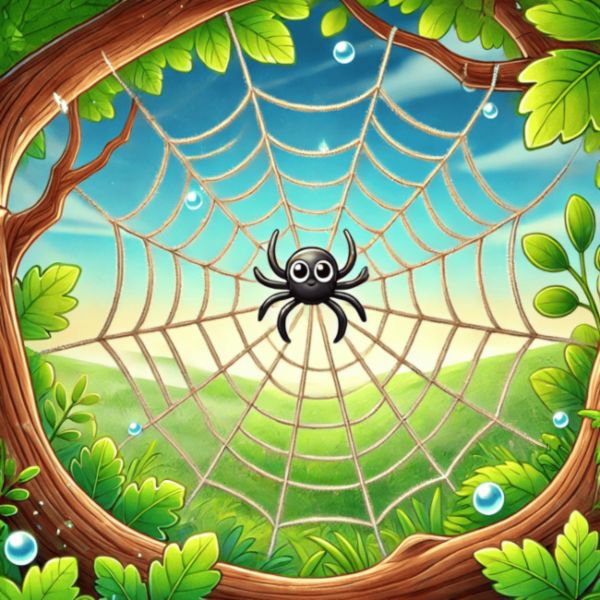
Domestic animals and their homes
As explained before, humans build homes for domestic animals. These homes protect them from rain, heat, cold and also from other animals.
1. Cattle - Barn
Cattles like cows are kept in barns for shelter, especially during bad weather. Barns keep them safe and give them a place to rest and eat.
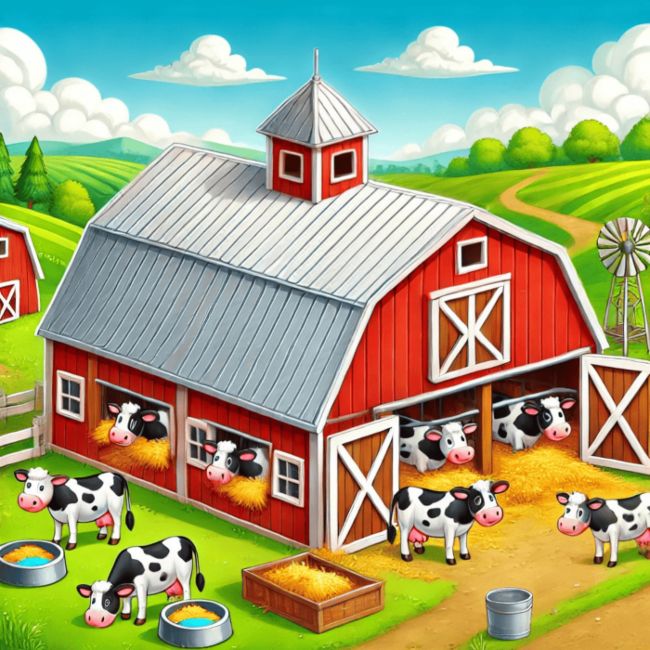
2. Chicken - Coop
Chickens live in coops which are safe houses that keep them warm and protect them from other animals. Coops also have boxes where hens lay their eggs.
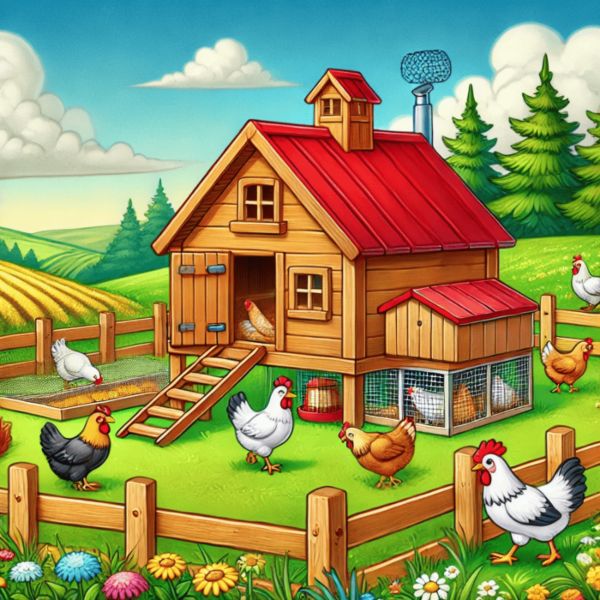
3. Dog - Kennel
A dog kennel is a safe place where dogs can sleep, eat, and rest. It can be inside our home or outside on the field.
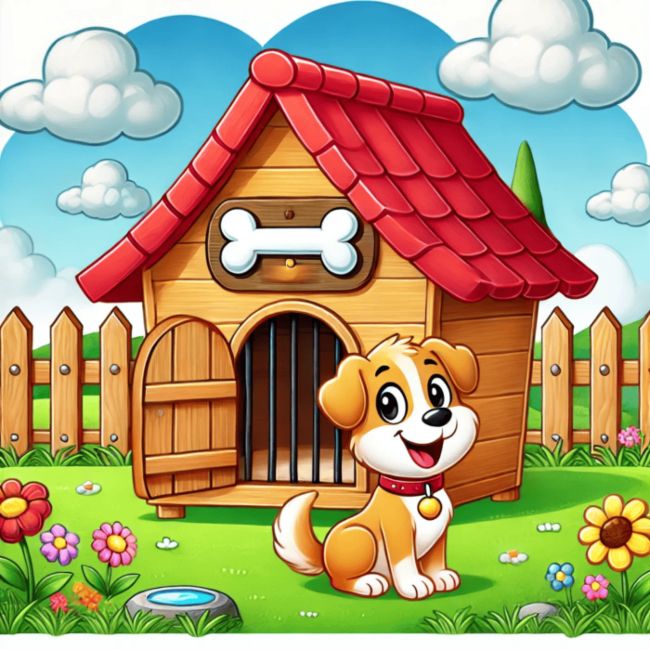
4. Horse - Stable
Horses live stables, which give them shelter, food, and water. Stables protect horses from bad weather and provide a safe place to rest. Check the different types of stables.
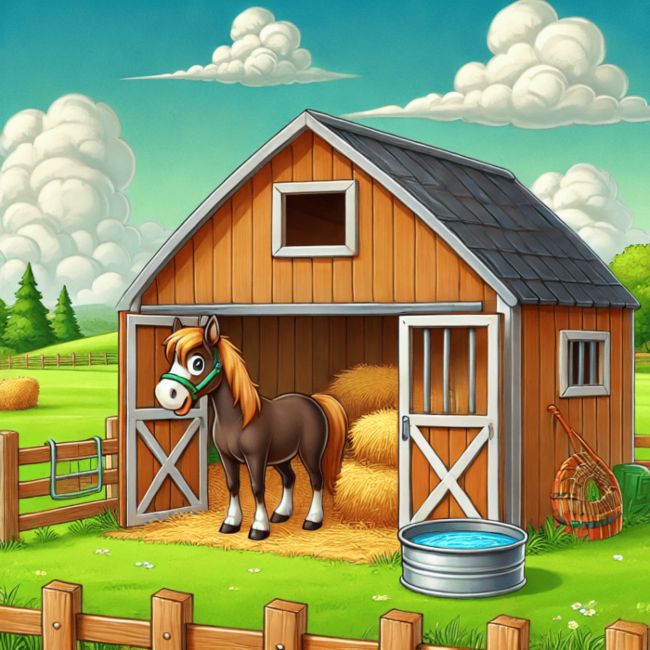
Animals and their homes worksheets for kids - Free PDF Download
Animal homes worksheets are a part of this lesson. These will help kids learn about animals and their homes in a fun way. Parents and teachers can use these to make learning enjoyable.
Orchids' learning material
Click the button to download the e-book
Things you have learnt!
- What is home for animals?
- Why do animals need homes?
- List of homes of animals.
Frequently Asked Questions
1. Which animal home is the den?
Answer: Lions live in dens.
2. Which animals lives in man-made homes?
Answer: Animals like dogs, chickens, horses, cattles like cows stay in man-made homes.
3. Which animals make their own homes?
Answer: Many animals make their own homes, like birds make nests in trees, ants create ant hills, and spiders make webs. These homes help them live safely.
Related Blogs
List of Animals and Their Babies with Names: Animal and their Young Ones
A list of desert animals names and their life adaptations: Desert Animals and their Adaptations
Discover rhyming words in English and browse our extensive list of rhyming words for kids: Rhyming Words for Kids
Learn how to convert a percentage to CGPA with our detailed step-by-step guide: Percentage to CGPA Calculator
Without zero, many modern technologies wouldn't exist: Who Discovered Zero?
The role of school in a child's life is crucial as it prepares them for future challenges: The Role of School in Kid's Life
Click here to learn fun and interesting tidbits about your favorite vegetable: Vegetables Name
Learn more about months and number of days in every month: Names Of The Months
Related Resources
NCERT Solutions | CBSE SYLLABUS | Antonyms | Synonyms | Stories For Kids | Poems for kids

